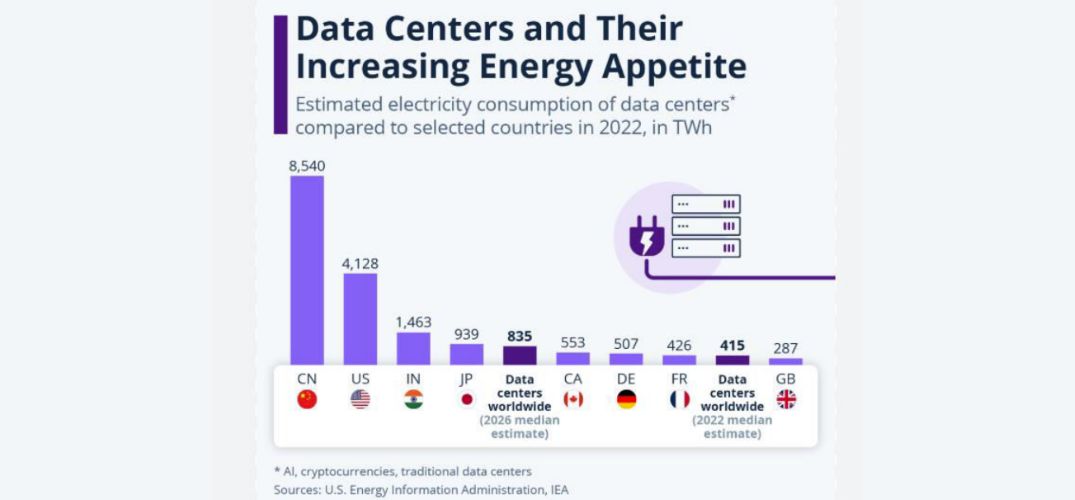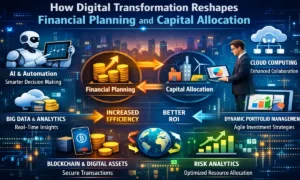In an era where technology governs nearly every aspect of modern life, the environmental footprint of data centers and digital infrastructure has become an area of increasing concern. The demand for data processing, cloud computing, and artificial intelligence is growing exponentially, pushing businesses and organizations to rethink their approach to digital sustainability. According to Sudheer Kolla in International Journal of Innovative Research in Computer and Communication Engineering, Green data practices are emerging as a necessary solution to mitigate the carbon footprint of digital operations while promoting energy efficiency and responsible resource consumption.
Understanding Green Data Practices
Green data practices refer to the implementation of environmentally sustainable strategies in data storage, processing, and management. This involves optimizing energy consumption, reducing electronic waste, and integrating renewable energy sources into data-driven operations. With companies depending more on cloud computing and big data, there is an urgent need to adopt energy-efficient solutions that align with global sustainability goals.
One of the primary concerns of data-driven industries is the rising energy demand for data centers. Traditional data centers consume vast amounts of electricity, often relying on non-renewable energy sources. In contrast, companies committed to green data practices are investing in advanced cooling technologies, energy-efficient hardware, and renewable power sources such as wind and solar energy to reduce their carbon footprint. In recent years, modular data centers have also gained traction as an energy-efficient alternative, offering scalable and eco-friendly infrastructure that reduces power consumption while maintaining high-performance computing capabilities.
The Role of Cloud Computing in Sustainability
Cloud computing is at the forefront of the digital revolution, offering scalable and efficient data storage solutions. However, the environmental impact of massive data centers powering cloud services cannot be ignored. Sustainable cloud computing solutions prioritize energy-efficient data centers, utilizing virtualization, optimized workloads, and AI-driven automation to enhance performance while reducing energy consumption.
Major tech companies are adopting green cloud computing. By shifting toward renewable energy and improving energy efficiency, they are setting an example for other industries. Organizations that migrate to eco-friendly cloud services benefit from cost savings and a reduced carbon footprint, aligning their digital operations with corporate sustainability initiatives. Companies like Google and Microsoft have already achieved carbon neutrality in their data centers, further proving that sustainable digital infrastructure is a viable reality.
Artificial Intelligence and Energy Efficiency
Artificial intelligence (AI) plays a significant role in enhancing green data practices. AI-driven optimization can predict peak energy demands, manage cooling systems efficiently, and reduce redundant processes in data centers. Smart algorithms allow businesses to maximize computing power while minimizing energy waste.
Furthermore, AI applications help businesses analyze energy consumption patterns and implement automation techniques that reduce overall environmental impact. This shift toward AI-driven energy management ensures that digital operations remain sustainable without compromising performance. Some AI-driven tools now assist companies in carbon tracking and sustainability reporting, providing valuable insights into energy savings and environmental impact reduction.
Challenges and Future Prospects
While green data practices offer numerous benefits, organizations face several challenges in implementation. The cost of transitioning to sustainable infrastructure, the need for specialized expertise, and compliance with evolving regulations can be barriers to adoption. However, as governments worldwide introduce stricter environmental policies and consumers demand more sustainable business practices, the pressure to embrace green technology is increasing.
The future of green data lies in continued innovation. Advances in quantum computing, biodegradable hardware, and AI-powered efficiency solutions will shape the next phase of digital sustainability. Companies that proactively invest in green data practices will not only contribute to global environmental efforts but also gain a competitive advantage in the evolving digital landscape. Additionally, regulatory bodies are expected to implement stricter sustainability mandates, incentivizing organizations to integrate eco-friendly solutions into their digital infrastructure.
Conclusion
Green data practices are no longer an option but a necessity for businesses and organizations navigating the digital era. According to Sudheer Kolla, By integrating energy-efficient solutions, leveraging AI for optimization, and transitioning to sustainable cloud computing, companies can significantly reduce their carbon footprint. As technological advancements continue, the commitment to digital sustainability will define the future of responsible innovation. Embracing green data practices is a strategic move that ensures long-term success while contributing to a more sustainable planet. Organizations that prioritize sustainability today will be the pioneers of a greener digital future, setting new standards for responsible and efficient technological advancements.



































